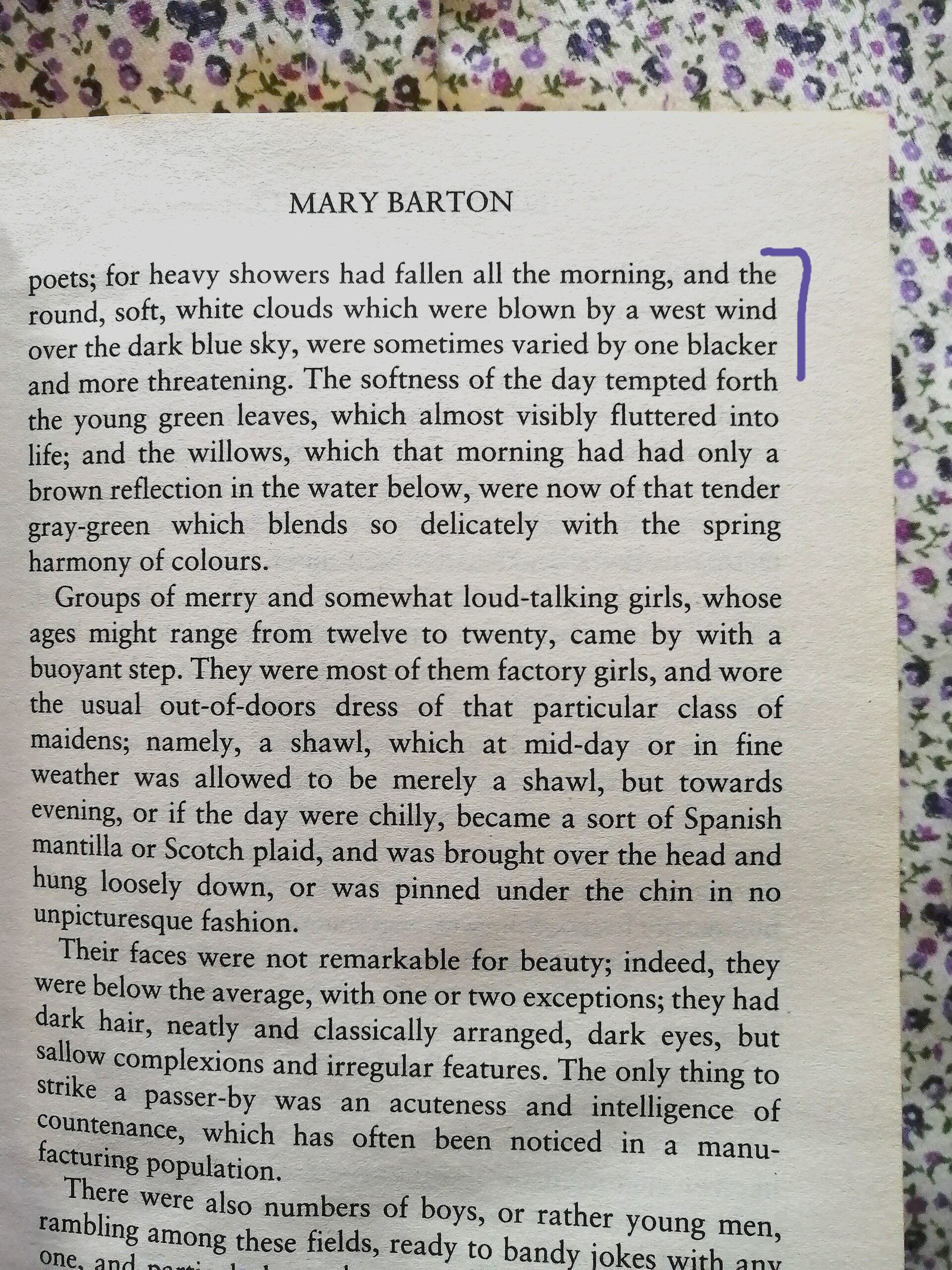Comparative adjectives can also work for describing lesser amounts of something. Again, from Gaskell’s Mary Barton:
📗 ‘The friend whom they met was more handsome and less sensible-looking than the man I have just described; he seemed hearty and hopeful, and although his age was greater, yet there was far more of youth’s buoyancy in his appearance.’
The comparative adjectives here encompass (include) ‘more handsome’ but also ‘less sensible-looking’, ‘greater’ and ‘far more of youth’. (This latter is not a comparative adjective but a comparative phrase – it could also be expressed ‘far more youthful’ or ‘far more buoyant’, thus transforming one of the nouns, ‘youth’s buoyancy’, into an adjective).
✏️ Another important point to consider: there might be occasions when you intentionally include the word ‘more’ or ‘less’ (even instead of the comparative adjective ending in ‘-er’) because you specifically want to emphasise the increase or decrease in the quantity of a thing. Returning to Gaskell again, notice how she used ‘more gentle’ rather than ‘gentler’ in the following sentence:
📗 ‘I have thought several times since, that she was a bit quieter, and more womanly-like; more gentle, and more blushing, and not so riotous and noisy.’
Now it is your turn! Here is a topic sentence from the novel (meaning that it summarises one of the main topics of the novel), describing the tensions and discontent that impoverished (having been made poor) workers experienced when they observed their employers growing rich due to workers’ toil. Find the comparative adjective in the sentence and consider how you might rephrase it.
📗 ‘At all times it is a bewildering thing to the poor weaver to see his employer removing from house to house, each one grander than the last, till he ends in building one more magnificent than all, or withdraws his money from the concern, or sells his mill, to buy an estate in the country, while all the time the weaver, who thinks he and his fellows are the real makers of this wealth, is struggling on for bread for his children, through the vicissitudes of lowered wages, short hours, fewer hands employed, etc.’
– Elizabeth Gaskell, Mary Barton (1848)
🎁 Interesting fact: Charles Dickens was sufficiently impressed by Gaskell’s Mary Barton that he extended (offered) an invitation to her to write a novel for his publication, Household Words. She subsequently (afterwards) authored (became the author of; wrote the books) North and South (1854), in part at his request (partly because he asked her to), and this spurred him (moved, encouraged him) to explore a related theme in his own work, Hard Times (1854).




